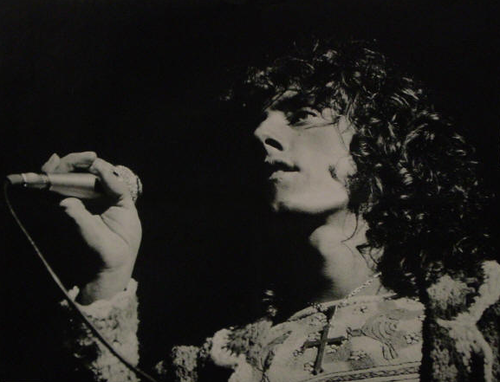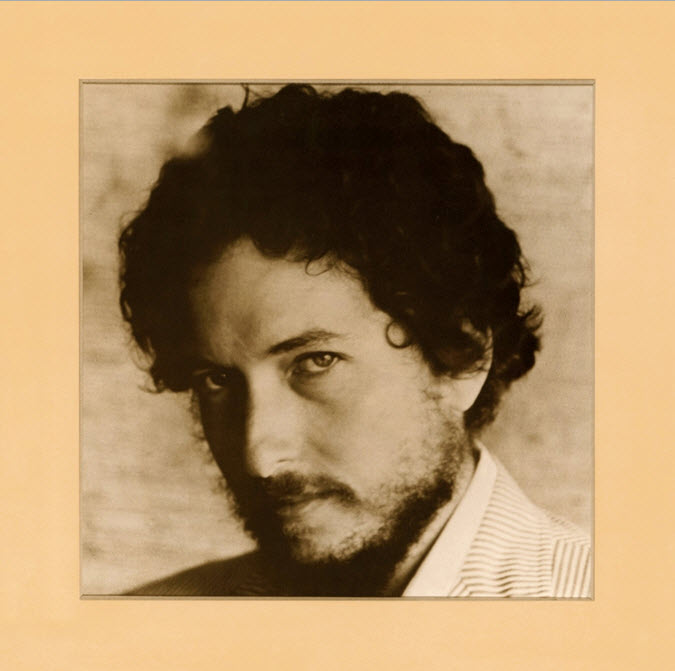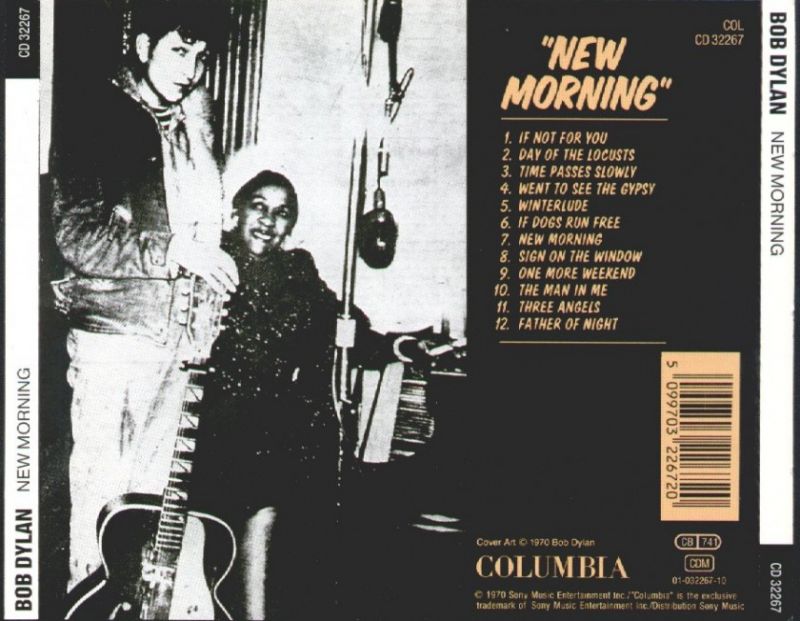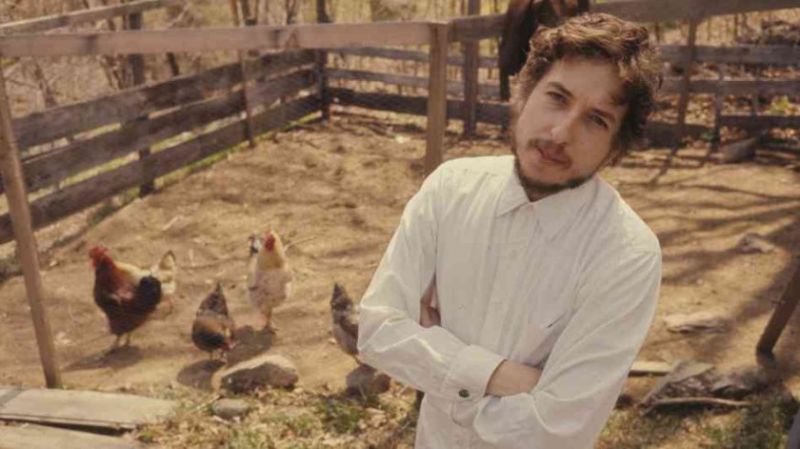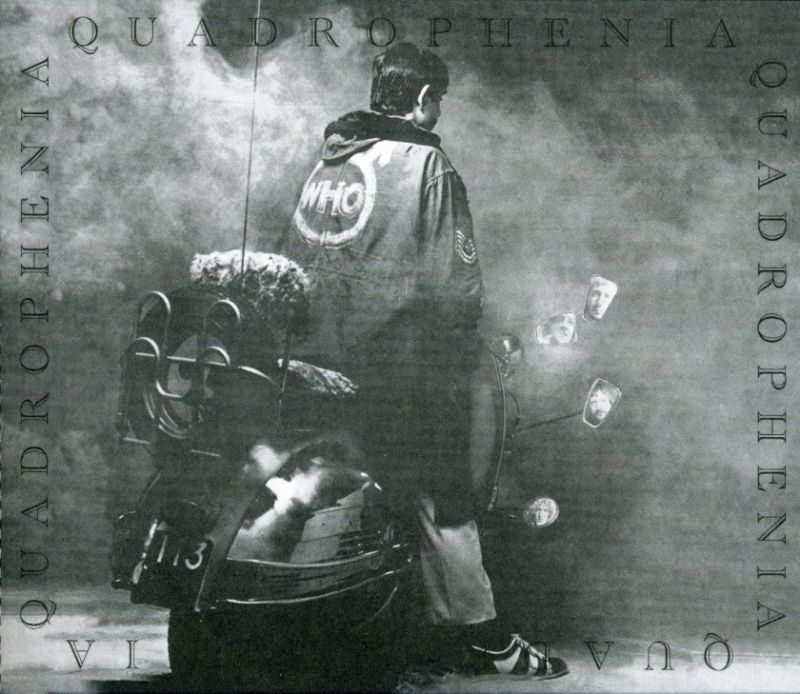Bob Dylan: Fort Collins, Colorado 23 May 1976 (video & audio) (read more)The last three songs on the album (“You’re a Big Girl Now,” “I Threw It All Away,” and “Idiot Wind“) are as powerful and exciting as anything Dylan has done (comparable, for instance, to the May 1966 versions of “Ballad of a Thin Man” and “Like a Rolling Stone”). As phenomenal as every aspect of each of these performances is, the unique orchestration of guitars, keyboards, violin, drums and voice on “Big Girl” must be singled out for particular praise. Stoner’s bass-playing while Dylan sings “Down the highway, down the tracks, down the road to ecstacy” on “Idiot Wind” will have a special place in my heart as long as I live. — |
 |
| Today: “Tommy” by The Who was released in 1969, 45 years ago (read more)Tommy (released 23 May 1969) is the fourth album by English rock band The Who, released by Track Records and Polydor Records in the UK and Decca Records/MCA in the US. A double album telling a story about a “deaf, dumb and blind kid”, Tommy was the first musical work to be billed overtly as a rock opera. Released in 1969, the album was mostly composed by Pete Townshend. In 1998, it was inducted into the Grammy Hall of Fame for “historical, artistic and significant value”. It has sold over 20 million copies worldwide. | 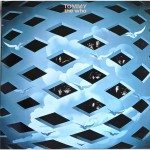 |
| Bruce Springsteen – Glory Days – East Rutherford, NJ – 23 May 2009 – Video (read more) |  |
Spotify Playlist – May 23 |
|
Tag Archives: The Who
May 16 in music history
| Bob Dylan: Blonde On Blonde (released May 16, 1966) (read more)The closest I ever got to the sound I hear in my mind was on individual bands in the Blonde on Blonde album. It’s that thin, that wild mercury sound. It’s metallic and bright gold, with whatever that conjures up. That’s my particular sound. ~Bob Dylan (to Ron Rosenbaum – Nov 1977) |
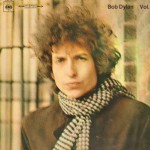 |
| Bob Dylan & The Hawks: Gaumont Theatre, Sheffield, England 16 May 1966 (read more) | 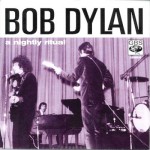 |
| Beach Boys: Pet Sounds (May 16, 1966) (read more)[Pet Sounds] blew me out of the water. I love the album so much. I’ve just bought my kids each a copy of it for their education in life…I figure no one is educated musically ’til they’ve heard that album…it may be going overboard to say it’s the classic of the century…but to me, it certainly is a total, classic record that is unbeatable in many ways…I’ve often played Pet Sounds and cried. I played it to John [Lennon] so much that it would be difficult for him to escape the influence. ~Paul McCartney (recalling his first impressions of Pet Sounds) |
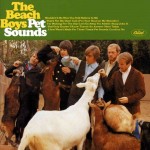 |
| The Who released “Live At Leeds” May 16, 1970 (read more) Rolling Stone [Magazine] hailed it as the best ever live album, and they may still be right… ~Chris Jones (BBC – 2007) |
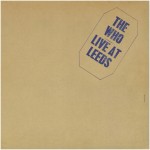 |
| Jean “Django” Reinhardt; 23 January 1910 – 16 May 1953) was a pioneering virtuoso jazz guitarist and composer. Reinhardt is often regarded as one of the greatest guitar players of all time and is the first important European jazz musician who made major contributions to the development of the idiom. Using only the index and middle fingers of his left hand on his solos (his third and fourth fingers were paralyzed after an injury in a fire), Reinhardt invented an entirely new style of jazz guitar technique (sometimes called ‘hot’ jazz guitar) that has since become a living musical tradition within French gypsy culture. With violinist Stéphane Grappelli, he co-founded the Quintette du Hot Club de France, described by critic Thom Jurek as “one of the most original bands in the history of recorded jazz.” Reinhardt’s most popular compositions have become jazz standards, including “Minor Swing”, “Daphne”, “Belleville”, “Djangology”, “Swing ’42″, and “Nuages”. |  |
Spotify Playlist – |
|
Today: Roger Daltrey is 70 Happy Birthday
Today: John Coltrane recorded A Love Supreme in 1964
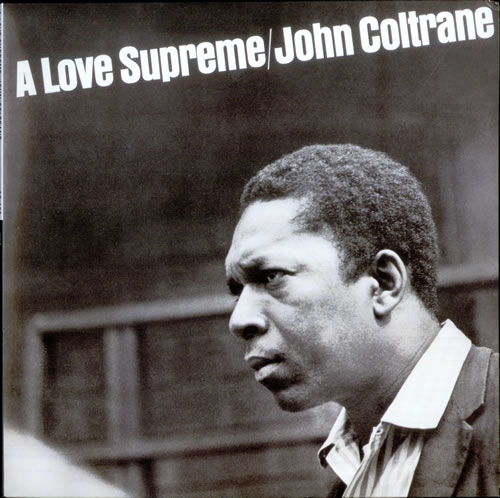 |
“My music is the spiritual expression of what I am — my faith, my knowledge, my being… When you begin to see the possibilities of music, you desire to do something really good for people, to help humanity free itself from its hangups…I want to speak to their souls.”― John ColtraneA fine documentary short about the album: |
Continue reading Today: John Coltrane recorded A Love Supreme in 1964
Today: Bob Dylan released “New Morning” in 1970, 43 years ago
..Well, there were two good songs on S. P., DAYS OF FORTY-NINE and COPPER KETTLE… and without those two LPs there’d be no New Morning. Anyway I’m just starting to get back on my feet as far as my music goes… Al, do you use amphetamine?
~Bob Dylan (A.J. Weberman Interview, Jan 1971)The album has a feeling of”starting over” about it, as the title and the back cover photo (Dylan with blues singer Victoria Spivey in 1961-he looks very young) both suggest.
~Paul Williams (Bob Dylan Performing Artist I: The Early Years 1960-1973)
This is a quirky album, from a Dylan not pointing a way for anyone, but from a great artist remaining at his work knowingly in the face of not being creatively on top form in the phenomenal way he had been in the period 1964–68.Warm and abiding, it sounds better and better as the years go by.
~Michael Gray (The Bob Dylan Encyclopedia)
Day of The Locusts:
From Wikipedia:
| Released | October 19, 1970 |
|---|---|
| Recorded | June–August 1970 at Studio B and Studio E, Columbia Studio Building, 49 East 52nd Street, New York City |
| Genre | Rock, country rock, country |
| Length | 35:21 |
| Label | Columbia |
| Producer | Bob Johnston |
New Morning is the eleventh studio album by American singer-songwriter Bob Dylan, released in October 1970 by Columbia Records.
Coming only four months after the controversial Self Portrait, the more concise and immediate New Morning won a much warmer reception from fans and critics. Most welcome was the return of Dylan’s familiar, nasal singing voice. While he has a slightly nasal tone to his voice on “Alberta #1” from Self Portrait this was the first full album with his familiar voice since John Wesley Harding in 1967: he had taken on a country croon since then. In retrospect, the album has come to be viewed as one of the artist’s lesser successes, especially following the release of Blood on the Tracks in 1975, often seen as a fuller return-to-form.
It reached #7 in the US, quickly going gold, and gave Dylan his sixth UK number 1 album. The album’s most successful song from a commercial perspective is probably “If Not for You”, which also was recorded by George Harrison, who had played guitar on a version of the song not released until 1991’s Bootleg Series Volume 2, and was also an international hit for Olivia Newton-John in 1971. Bryan Ferry also included the song on Dylanesque.
Check out:
- Bob Dylan albums posts @ johannasvisions.com
– - The 8th and last New Morning recording session – 12 August 1970
Aftermath:
Critics were quick to praise New Morning upon its release. Ralph Gleason’s Rolling Stone review reflected most sentiments, proclaiming “WE’VE GOT DYLAN BACK AGAIN.” Few placed it alongside his masterworks from the 1960s, but it was considered a substantial improvement over its predecessor. It was only four months since Self Portrait, and many reviewers did not resist comparing the two. “In case you were wondering how definitive that self-portrait was, here comes its mirror image four months later,” wrote Robert Christgau, before giving it an A-.
While New Morning neared completion, Dylan and his manager, Albert Grossman, formally dissolved their business relationship on July 17, 1970. Grossman retained certain rights from previous agreements, including royalties on work produced under his management, but their publishing company, Big Sky Music, would be replaced by Ram’s Horn Music before the end of 1971, putting an end to any joint ownership in publishing. Dylan would gain complete control over his personal management and his own music publishing. Another tense contract negotiation awaited in 1972, this time with CBS. Until then, there would be little musical activity as Dylan entered the quietest period of his career.
More opinions:
Paul Williams (Bob Dylan Performing Artist I: The Early Years 1960-1973):
New Morning to me is a scary album. Unlike Nashville Skyline and Self Portrait it’s not a conceptual experiment (Dylan goes country; Dylan sings other people’s songs). It is not a half-hearted effort-there is energy and humor in the singing and musical accompaniment, cleverness and intelligence in the lyrics, personality and imagination in the music, the sound. It should be, in short, the return of Bob Dylan, and was hailed as such by fans and critics at the time. And that’s the scary part. New Morning is Bob Dylan pretending to be Bob Dylan, not in any obvious way (like writing a sequel to “Mr. Tambourine Man”) but in a very subtle way: he goes through all the motions and touches all the bases, but leaves out Ingredient X.
Michael Gray (The Bob Dylan Encyclopedia):
There’s much more going on here than this, though. Throughout the album there is a subtle but sustained falsification of the rural/patriarchal ideas suggested here (and on Nashville Skyline): a persistent kind of Midas touch that deliberately
makes the picture here an idealised and therefore not a real one. … The cumulative effect of all this carefully established unreality is to make New Morning very different, in its vision, from any other Dylan album. It begins to express a new optimism-through-doubt. He may have little to say but he has the courage to know it: and to make, to pass his time, an intelligent critique of what he doesn’t believe in any more. New Morning says for his country persona what ‘My Back Pages’ said about his protest persona.
Robert Christgau:
In case you were wondering how definitive that self-portrait was, here comes its mirror image four months later. Call it love on the rebound. This time he’s writing the pop (and folk) genre experiments himself, and thus saying more about true romance than is the pop (or folk) norm. Two side-closing throw-ins–a sillyditty about a gal named “Winterlude” and the scatting beatnik send-up “If Dogs Run Free”–almost steal the show. And the two other side-closers, which make religion seem dumber than it already is, damn near give it back. A-
Track listing:
All songs written by Bob Dylan.
- Side one
- “If Not for You” – 2:39
- “Day of the Locusts” – 3:57
- “Time Passes Slowly” – 2:33
- “Went to See the Gypsy” – 2:49
- “Winterlude” – 2:21
- “If Dogs Run Free” – 3:37
- Side two
- “New Morning” – 3:56
- “Sign on the Window” – 3:39
- “One More Weekend” – 3:09
- “The Man in Me” – 3:07
- “Three Angels” – 2:07
- “Father of Night” – 1:27
–
My fav songs from the album:
- If Not For You
- New Morning
- The Man In Me
- Sign On the Window
If Not For You:
Personnel:
- Bob Dylan – vocals, harmonica, acoustic guitar, electric guitar, organ; piano on “Day of the Locusts”, “Time Passes Slowly”, “Went to See the Gypsy”, “Winterlude”, “Sign on the Window”, and “Father of Night”
- Additional musicians
- David Bromberg – electric guitar, dobro
- Harvey Brooks – bass guitar
- Ron Cornelius – electric guitar
- Charlie Daniels – bass guitar
- Buzzy Feiten – electric guitar
- Al Kooper – organ, piano, electric guitar, French horn
- Russ Kunkel – drums
- Billy Mundi – drums
- Hilda Harris – backing vocals
- Albertin Robinson – backing vocals
- Maeretha Stewart – backing vocals on “If Dogs Run Free”
- Technical personnel
- Bob Johnston – production
- Len Siegler – photographer
–
Sign On the Window:
–
“New Morning” is not available @ Spotify, but another great album released on this day in 1973 is:
Album of the day: The Who – Quadrophenia
Other October 19:
Continue reading Today: Bob Dylan released “New Morning” in 1970, 43 years ago

